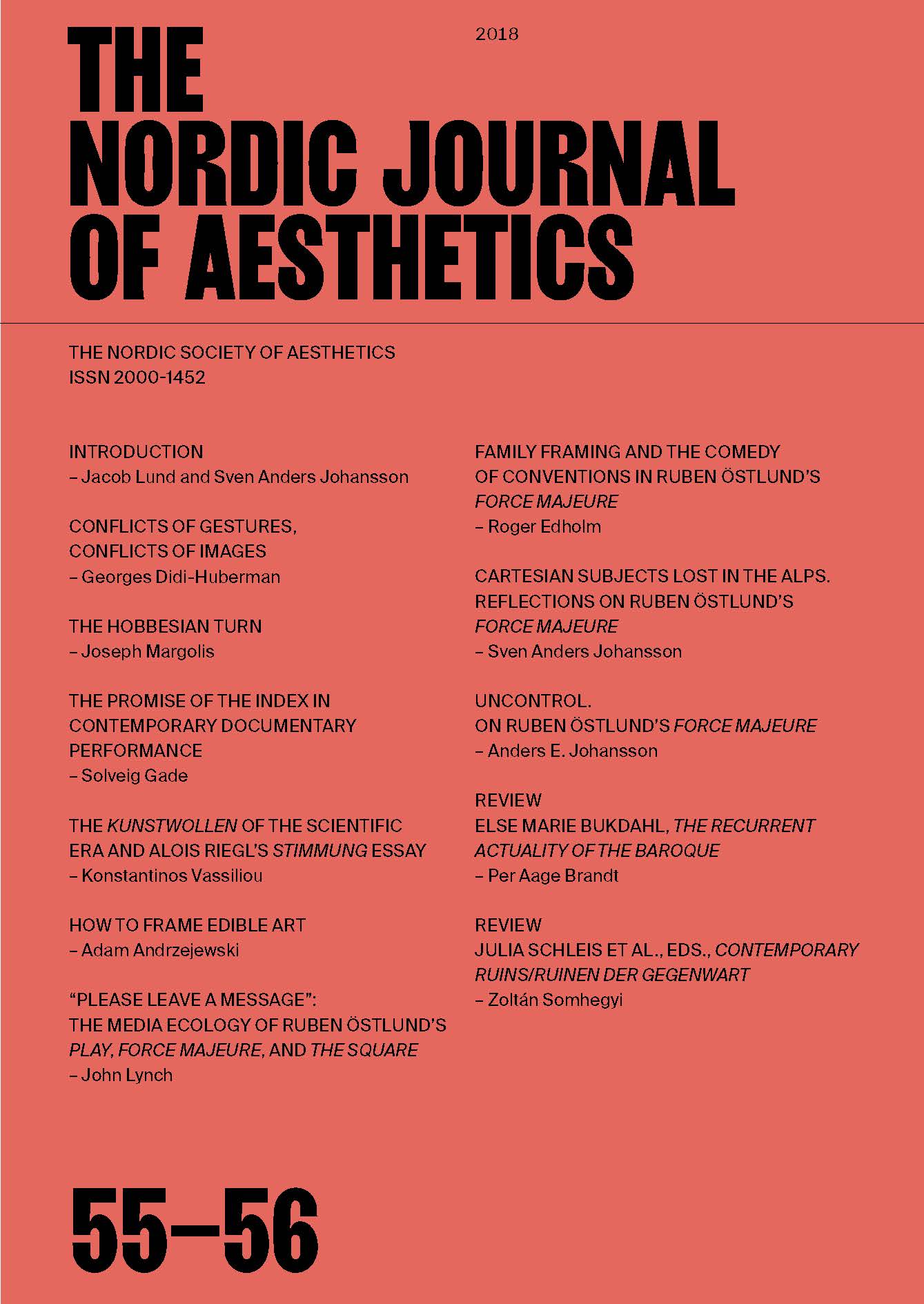CARTESIAN SUBJECTS LOST IN THE ALPS REFLECTIONS ON RUBEN ÖSTLUND’S FORCE MAJEURE
DOI:
https://doi.org/10.7146/nja.v27i55-56.110717Abstract
The article analyses the constitution of subjectivity in Ruben Östlund’s film Force Majeure (2014). At the centre of attention stands the male protagonist who is uncapable of reconciling his inner nature with the external expectations. If the film may be un- derstood as a critique of existing middle-class conventions, it also reproduces a highly conventional ideal of the self-identical subject. The article argues that this confusion or irony is an expression of a Cartesian subject – still prevalent in the film – in crisis. A neglected aspect of Descartes’ theory is that the autonomy of the subjects presupposes the existence of God. The problem for Östlund’s char- acters is that there is no God. Still, they act as if he, or as if any au- thority might, legitimize their subjectivity. Thus, the whole existence becomes a series of performances. The idea of an inner nature cor- responds with the notion of an outer nature. The latter is certainly very present in Force Majeure, but at the same time this nature is constantly problematized. On an allegorical level, the film may thus be read as a comment on the Anthropocene, a state where we no longer know neither what “nature”, nor “culture” is.
Downloads
Published
How to Cite
Issue
Section
License
Authors who publish with this journal agree to the following terms:
- Authors retain copyright and grant the journal right of first publication with the work simultaneously licensed under a Creative Commons Attribution License that allows others to share the work with an acknowledgement of the work's authorship and initial publication in this journal.
- Authors are able to enter into separate, additional contractual arrangements for the non-exclusive distribution of the journal's published version of the work (e.g., post it to an institutional repository or publish it in a book), with an acknowledgement of its initial publication in this journal.
- Authors are permitted and encouraged to post their work online (e.g., in institutional repositories or on their website) prior to and during the submission process, as it can lead to productive exchanges, as well as earlier and greater citation of published work (See The Effect of Open Access).




